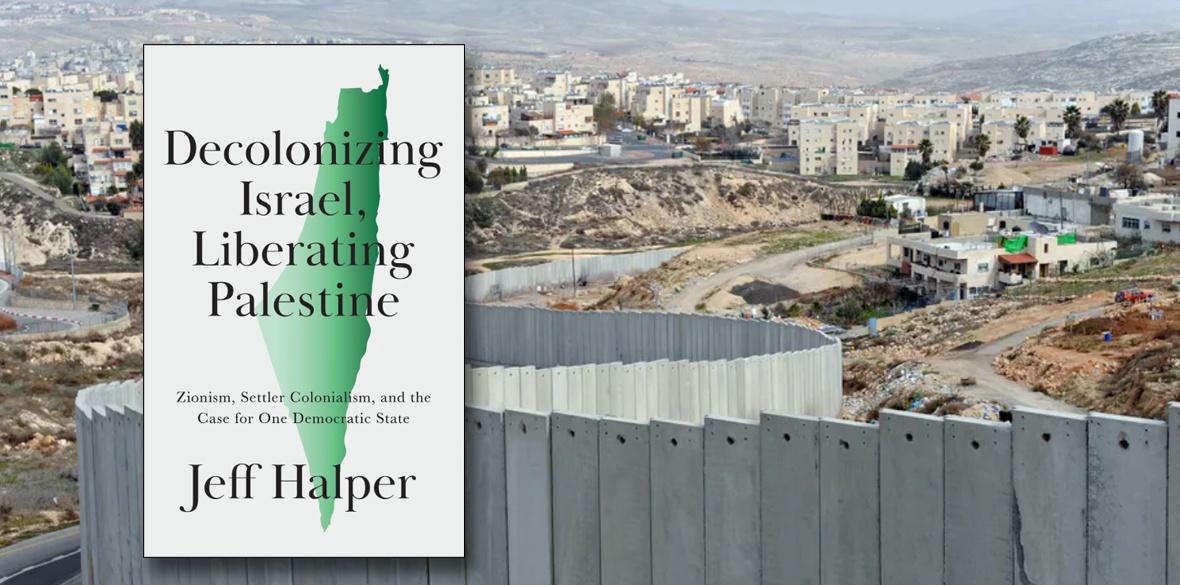This is the last article you can read this month
You can read more article this month
You can read more articles this month
Sorry your limit is up for this month
Reset on:
Please help support the Morning Star by subscribing here
Decolonizing Israel, Liberating Palestine: Zionism, Settler Colonialism and the Case for One Democratic State
by Jeff Halper
(Pluto Press, £14.99)
THE IDEA of a single democratic state as a political solution for Palestine is nothing new. It was the policy of the Palestinian liberation movement, enshrined in the PLO Charter and only abandoned by the PLO in 1988 in favour of the two-state solution.
In this book Jeff Halper, a founder member of the recently established One Democratic State campaign, argues that Israel never intended the two-state solution to be a solution at all — instead, it was employed as a useful tool for managing the situation rather than solving it.
Meanwhile Israel has consolidated its repressive regime by splintering Palestinian lands with Israeli settlements linked by exclusive superhighways, policed by countless checkpoints and barriers including the apartheid wall.
In the light of further Israeli encroachments on the West Bank and the Jordan Valley, it is plain according to Halper that the two-state solution is “dead and gone, buried under massive settlement blocks”. If it were implemented it would give the Palestinians a mere 23 per cent of historic Palestine.
Born an American Jew, Halper emigrated to Israel in 1973 and quickly became aware of the nature of Israel’s settler-colonial society. He is a founder of ICAHD, The Israeli Committee Against House Demolitions and has been arrested several times for trying to prevent demolitions.
As a Jew, he explains, he cannot speak for Palestinians but sees himself as a comrade and a “colonist who refuses.”
In condemning the Israeli apartheid regime and in recognising the unfeasibility of the two-state solution, this book promotes a detailed political programme for the decolonisation of the country and its rebuilding as a single democratic state based on equality and justice for all its citizens.
Halper recognises that a single state exists already. The task is to transform it from an apartheid into a democratic entity and, explicit in the 10-point programme to achieve it, is a commitment to the right of return for all refugees and an insistence on collective as well as individual rights: “No group will have any privileges, nor will any group have domination over others,” Halper states.
While emphasising the need for a well-considered strategy to achieve the goal of a single democratic state for all Israel’s inhabitants, he points out the difficulty of pulling together diverse campaign groups, both domestic and international, into a broad-based cohesive movement unless there is a political end game to work towards and a strategy to arrive there.
He envisages an alliance between Palestinians, the international community and liberal Israeli Jews to achieve this.
As Israeli settler-colonialism can only succeed with the connivance of powerful international allies, and as Israel is highly unlikely to decolonise itself from within, he argues that the impetus for change must come from Palestinians mobilising international public opinion, which in turn will force foreign governments to change their policies towards Israel.
Halper’s analysis is lucid and his argumentation convincing throughout. His obvious energy and optimism for his cause make this an essential and empowering text for anyone interested in the history and future of Israel-Palestine.











